
Films Review | Jan 23,2021
This past Monday was the second time Belay Zerihun, a second-time voter, has had to stand in a long queue over the past couple of months. The first time was in early May when he went to get his voter ID card during the extended registration period. He recalled standing for hours in line. On the morning of June 21, 2021, he arrived at Polling Station 34 of Nefas Silk Lafto District, in the neighbourhood known as Haile Garment, to cast his ballot in the sixth national elections after the current constitutional order was installed in the mid-1990s.
The lines were so long that he and many voters could not see the stations from where they stood.
Long queues were seen stretching out from polling stations all over Addis Abeba and the rest of the country, and Belay was lined up to vote outside a premise that incorporated no less than three separate polling stations. Each was designed by the National Election Board of Ethiopia (NEBE) to accommodate up to 1,500 voters.
Belay endured, cast his ballot despite aching legs and heavy rainfall, and managed to make it home by 5pm, eight hours later.
The long queues were indicative of a strong voter turnout and evidence of a public determined to have their voices heard. However, there were also other reasons for the lines too.
Belay saw the process hampered as only one poll worker was in charge of cross-checking names from the station's registry, an exercise that slowed things down. Perhaps unsurprisingly, a lack of poll workers was just one among a series of setbacks faced by the electoral on election day. In the week leading up to the polling date, the Board had trained 244,000 poll workers to be deployed in groups of five to the 48,000 stations across the country but Tigray, Somali and Harari regional states. Attributed to technical glitches and insecurities, these are some of the 102 constituencies where the Board found it impossible to conduct elections last week.
Where it did, some of the poll workers failed to show up to their assigned stations. Voting had to go on nonetheless, under-staffed.
The majority of polling stations were operating under capacity, in some cases even having to seek assistance from observers representing civil society organisations. The African Union Election Observation Mission, which testified the elections to be "orderly, peaceful and credible", noted similar issues. Of the 22 stations it monitored, 13 were opened late due to tardiness from poll workers and delays in the deliveries of election materials. Of the 249 stations the Mission visited over the course of the day, 80pc had long queues.
Electoral officials were compelled to push polls closing hours to 9pm. Yet, a significant number of polls in the capital were still seeing long queues. In some cases, such as a polling station in Nifas Silk Lafto District, the last voters were around as late as 11pm. Others had voters pouring in until after midnight.
Voters in some areas had to wait for the following day to cast their ballots. Nineteen constituencies in Sidama Regional State were made to vote on Tuesday after electoral officials went short of ballot papers. The same was true for voters in Gambella Regional State.
In three constituencies of the Amhara Regional State, including Dembiya, voting was called off entirely after ballot boxes were found opened the day before the polling date. Officials at the Board have since announced that elections there will be held on September 6, 2021, along with 69 other constituencies.
Election workers prep ballot boxes for counting at a station in the Nefas Silk Lafto District.
Despite widespread apprehension before the polling date, the elections last week went largely peaceful (where they took place) and were marked by a high turnout of the nearly 40 million voters registered. Redwan Hussien, state minister for Foreign Affairs, described the elections on his social media posting as a "spectacular" event "except few and understandable technical glitches."
These exceptions include the killing of a security officers in in Dembiya Wereda,central Gonder. Mekuanint Mekete, head of the electoral board in the Amhara regional office, was unable to provide details on the killing, for he had yet to receive a full report on the incident.
In the Hamer area of the Southern regional state, a representative of the Hibir Ethiopia Democratic Party (Hibir) was found beaten to death in the aftermath of the polling date.
"We've reported the incident to security officials in the region," said Girma Bekele, leader of the party, who has a history of political activism in the region for nearly three decades. "We're following the developments."
Security concerns were so alarming, four percent of the polling stations 2,200 monitors from the Coalition of Ethiopian Civil Society Organisations for Election (CECOE) had visited were inside police stations, army barracks, and the premises of political party offices. The Coalition has deployed 3,000 monitors across the country, the largest contingent of poll observers from the African Union and the East African Joint Force. Leaders of the Coalition disclosed their monitors encountered campaigning in and around 12pc of the polling stations, contrary to the Board’s regulations. They have also observed at least 86 incidents where individuals unauthorised were present in polling stations and alleged that 10pc of the booths were not sufficiently secretive. Unauthorised interventions were seen in one percent of the stations where monitors visited during ballot counting, according to the Coalition.
Contending political parties, too, remained watchful of the electoral process, collecting complaints from their own representatives in the field.
Abebe Akalu is secretary of the Ethiopians for Citizenship & Social Justice (EZEMA), an opposition that had fielded the second largest candidates of the 9,300 who battled on the electoral front last week. His party has lodged 410 complaints before the electoral board, claiming some of its 1,540 candidates were affected.
“If the issues reported to the Board are not addressed, we'll turn to the law,” Abebe said at a press briefing EZEMA leaders gave two days following the polls.
Some of these complaints have to do with the vote-counting and allegations that some polling stations were providing voters with ballot papers on which the photos and names of candidates were not visible, according to Yeshiwas Assefa, chairman of EZEMA.
“These elections are part of the country’s transformation, not the end,” Yeshiwas said, commenting on the elections in general.
For Ethiopia's development partners, including the United States, European Union, United Kingdom and Canada, elections on their own cannot transform the country's politics or resolve the challenges it faces. A full-blown civil war is underway in the Tigray Regional State, and five regional states are under the spell of instability, including a growing insurgency in western Wellega of the Oromia Regional State. Two main opposition parties—the Oromo Federalist Congress (OFC) and the Oromo Liberation Front (OLF)—have boycotted the elections after their leaders, Jawar Mohammed and Bekele Gerba, were jailed, offices shut down, and many in their rank and file incarcerated. Although unhindered from taking part in the elections, the opposition Balderas has its leaders, including Eskinder Nega, remain under custody battling charges of alleged involvement in terrorism.
This irksome context prompted development partners, some of which declined to send election monitors, to issue a series of sobering statements in the aftermath of the elections. They called the elections neither free nor fair for all Ethiopians.
The elections took place "against a backdrop of grave instability," said Antony Blinken, secretary of state, in a statement he issued four days after Ethiopia's poll. They urged Ethiopian politicians for post-election political dialogue and national reconciliation, a call that angered Addis Abeba that saw in the "entities other than Ethiopians . . . weeping and gnashing of teeth."
"It's not fair to unwarranted second-guess us and then to fetch for fig leaves to make-up for such fumblings," said Redwan, who sounded irritated that the west failed to comment what should be commendable. "We still learn. It's still work in progress."
The dissatisfaction is, however, echoed from within, too.
Andualem Arage, deputy leader of EZEMA, pointed his fingers at the regional security forces for allegedly preventing his party cadres from campaigning. He lashed at the incumbent, Prosperity Party (PP), condemning it for "running alone" in the country's largest region, Oromia, which takes 178 of the 547 seats in the federal assembly.
These were part of the many irregularities pundits like Adem Kassie say diminished the national elections' integrity last week. An election and constitutional governance expert currently working as a program officer for the International Institute for Democracy and Electoral Assistance, Adem believes the major hiccups are the exclusion of Tigray and the absence of strong opposition parties in Oromia Regional State.
Hibir Ethiopia avoided fielding candidates in Oromia and Benishangul-Gumuz regional states, dismayed by "a lack of a free political space," said Girma. It had 258 registered candidates, which falls short of the 278 seats a political party needs to form a government.
Girma's party was dispirited in seeing reports of irregular voter registration in some parts of the country, such as the Somali Regional State, and the opening of 76 polling stations without the Board's knowledge. Poor preparedness by poll workers was also a source of chagrin for the party.
Nonetheless, for many voters who spoke to the media, peace and security remained their deepest concern. The 40-year-old mother of two, Aynaddis Tigabu, a resident of Gonder city in Amhara Regional State, was one of these voters. Exiting a polling station in Kebele 17 of Zoble District, Aynaddis was comforted the day came to pass peacefully.
"Despite fears by many, it was a peaceful day," Aynaddis said.
Ballot counting in most places, including where Aynaddis lives, began immediately after polling was closed. The Board initially anticipated announcing preliminary results within five to 10 days of the elections. Although there seems to be a delay, results from individual polling stations have steadily been posted since Tuesday morning. Yet to be certified by the electoral officials, random results and earlier concession by opposition candidates indicate that the incumbent Prosperity Party has little to be unhappy about.
In polling stations 10 and 11 of Qirqos District (Constituency 18), Zadig Abraha of the incumbent party has carried 1,144 of 1,718 votes cast. Chair of the election committee of his party, Zadig enjoyed a landslide victory over his contenders Wondwosen Teshome of EZEMA (110 votes) and Solomon Gezahegn of Balderas, who trailed with 153 votes.
The shock for the opposition camp came in the way of the electoral defeat Berhanu Nega (Prof.) suffered at the hands of the incumbent fielded to claim a seat in Nefas Silk Lafto District (Constituency 23). At Jegema Kello Station, head of the city's education bureau, Dilamo Otore of Prosperity Party garnered 506 votes against Berhanu of EZEMA, who got 365 votes of 1,137 registered. The latter is a household name for a rollercoaster political career since the 1970s student movement era.
No less was jarring the electoral loss of Andualem Aragie, a political dissident who spent over 3,000 days in prison under the EPRDF regime. Running against Sintayehu W. Michael of Prosperity Party in Kebele 6 of Arada District (Constituency 12/13), Andualem received 181 fewer votes than the 581 votes his contender has secured at Polling Station 11.
The outcome of the national elections is yet to be disclosed by electoral officials. Voters like Belay are keeping an eye on the results from their own constituencies. Although some are early on concluding the outcome, the Board is legally bound to announce preliminary results by July 1, 2021.
Adem, the constitutional expert, has observed a tendency on the side of political parties to view the election's outcome with all its mishaps. Whatever the results might show, there are issues to be addressed, he says.
"Elections are important, but they don't address the political differences amongst the people," he stated.
When parliament opens in the first week of October, voters in Tigray Regional State will not be represented with elected legislators meant to take the 38 seats in the federal assembly. A difficult situation in the regional state took a dark turn just days after many parts of the country went to the polls as reports of an airstrike hit a marketplace near Meqelle, causing the death of over 60 people and injuries in the hundreds. It is a grim reminder that the country needs healing, experts say.
The only viable option at this point is to have a national dialogue among disputing parties to reach shared understanding, remarked Adem, echoing what western countries urge Ethiopians to do.
"We call on the government and all stakeholders in Ethiopian society to ensure that a meaningful, broad-based national dialogue process takes place and to commit to peaceful solutions," says a statement issued by the EU, UK and Canada last week. "This is needed to enable Ethiopia’s democratic development and to reduce conflict across the country, including a political resolution of the situation in Tigray."
PUBLISHED ON
Jun 26,2021 [ VOL
22 , NO
1104]

Films Review | Jan 23,2021
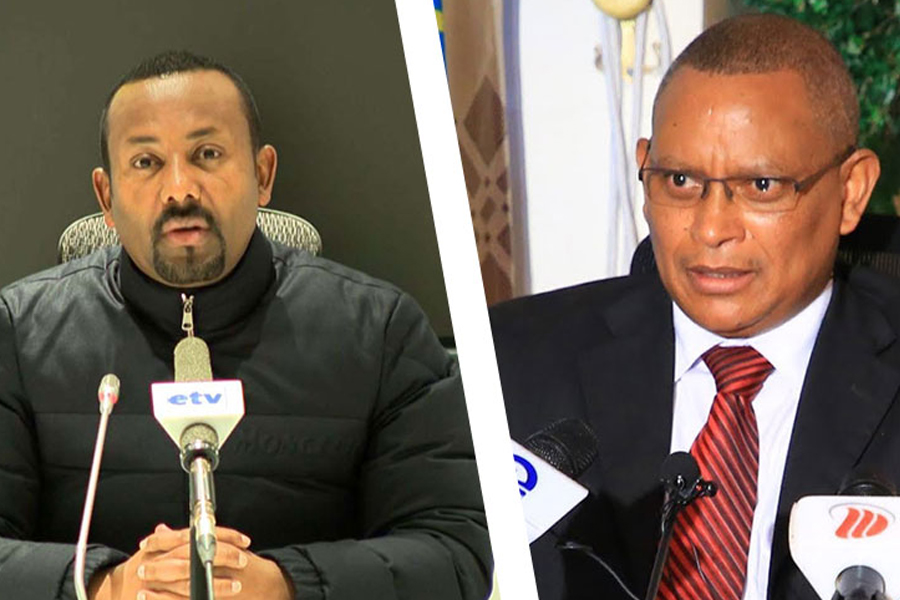
Fortune News | Nov 07,2020
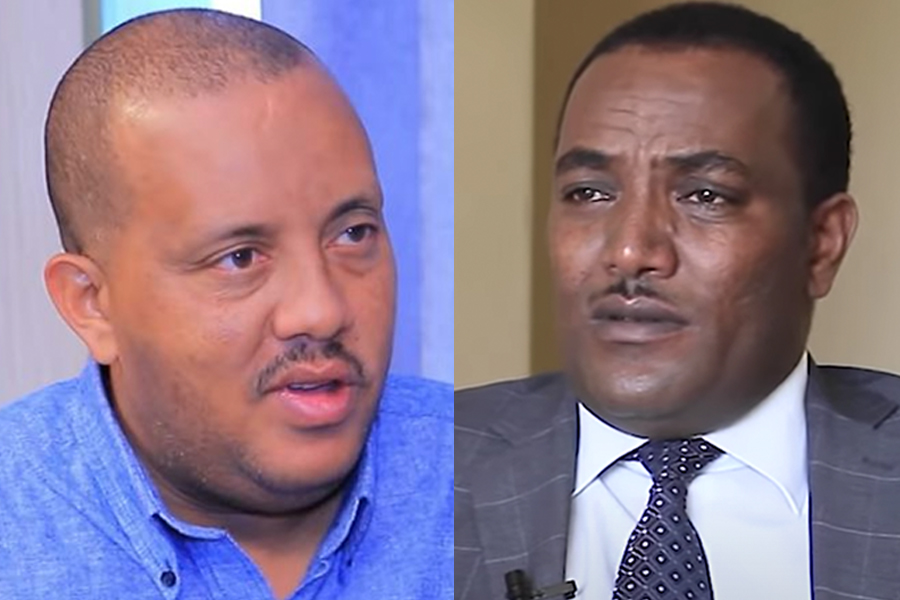
Fortune News | May 05,2020

Viewpoints | Dec 26,2020

Radar | Jun 03,2023
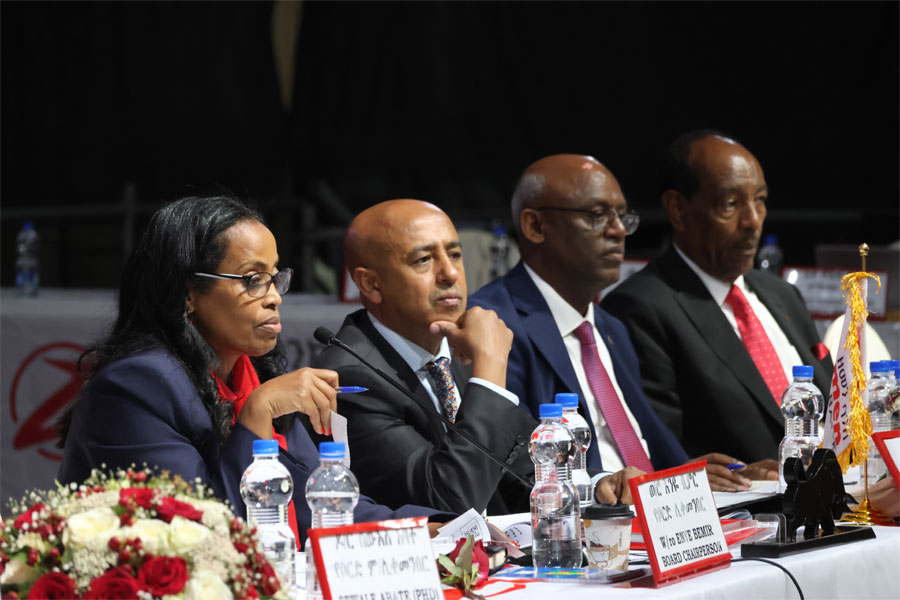
News Analysis | Nov 03,2024
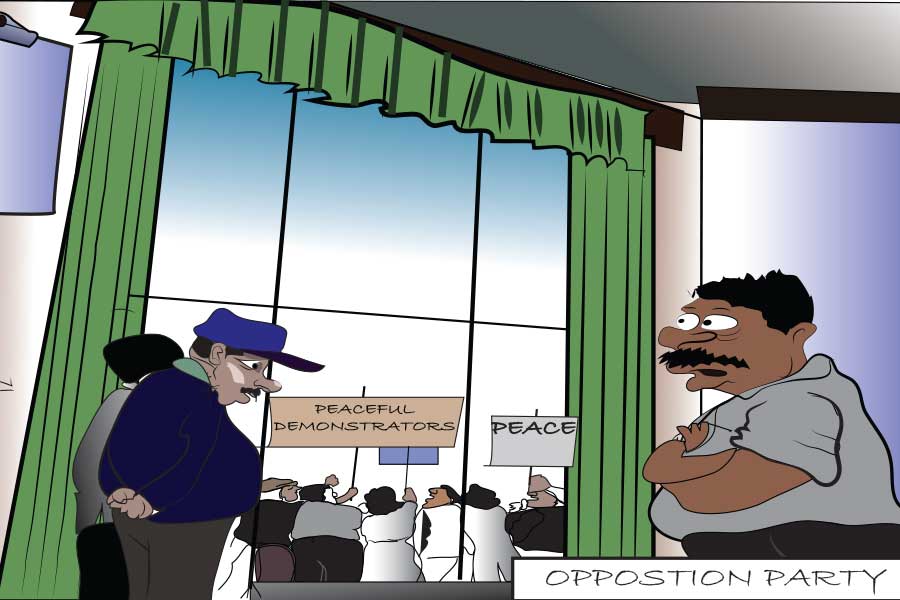
Editorial | Sep 28,2019
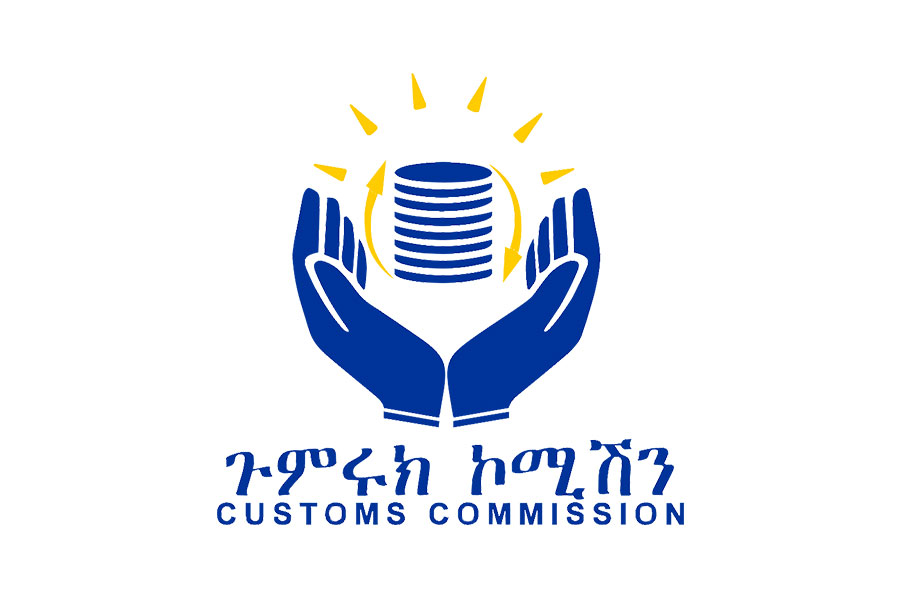
Fortune News | Jul 18,2021

Viewpoints | Aug 06,2022

Verbatim | May 06,2023

Dec 22 , 2024 . By TIZITA SHEWAFERAW
Charged with transforming colossal state-owned enterprises into modern and competitiv...

Aug 18 , 2024 . By AKSAH ITALO
Although predictable Yonas Zerihun's job in the ride-hailing service is not immune to...

Jul 28 , 2024 . By TIZITA SHEWAFERAW
Unhabitual, perhaps too many, Samuel Gebreyohannes, 38, used to occasionally enjoy a couple of beers at breakfast. However, he recently swit...

Jul 13 , 2024 . By AKSAH ITALO
Investors who rely on tractors, trucks, and field vehicles for commuting, transporting commodities, and f...

Oct 18 , 2025
The political establishment, notably the ruling party and its top brass, has become p...

Oct 11 , 2025
Ladislas Farago, a roving Associated Press (AP) correspondent, arrived in Ethiopia in...

Oct 4 , 2025
Eyob Tekalegn (PhD) had been in the Governor's chair for only weeks when, on Septembe...

Sep 27 , 2025
Four years into an experiment with “shock therapy” in education, the national moo...